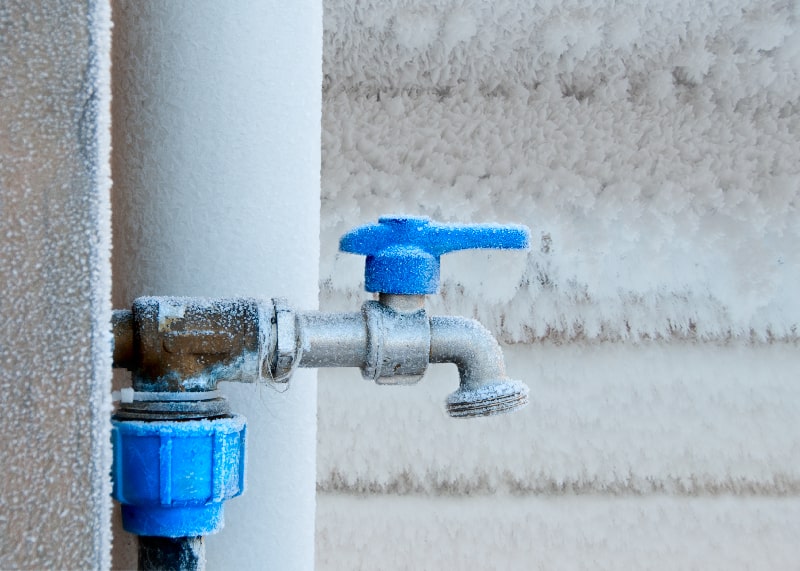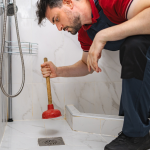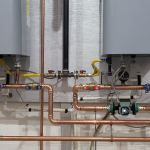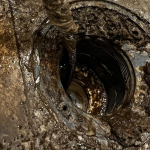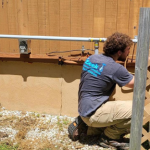Winter is a great time for reflection and family with all of the holidays sprinkled throughout the season. However, winter can also be a time of great agitation for your plumbing systems. As temperatures continue to drop below freezing, you can have frozen or burst pipes and heat problems.
Refer to the following tips on how to make it through the winter without a hiccup.
- Winterize all outdoor plumbing systems
Many homeowners have outdoor plumbing for kitchens, showers, pool houses, gardens, and even guest houses. If those areas are not properly heated, the water lines will freeze. The plumbing must be drained, filled with antifreeze, and winterized to prevent frozen pipes. Water expands when it is frozen, and the increased pressure build up can cause the piping to burst.
- Turn off all outside hose bibs and water valves
All houses typically have outdoor hose bibs to hook up your standard garden hose. If those valves are not drained of all residual water, they will freeze and potentially burst. You may not notice any water as the ice may keep everything in place, but once temperatures rise above freezing, water will be spraying out. Look at the attached picture of a hose bib that Zeek Plumbing was on site to repair this past Winter.
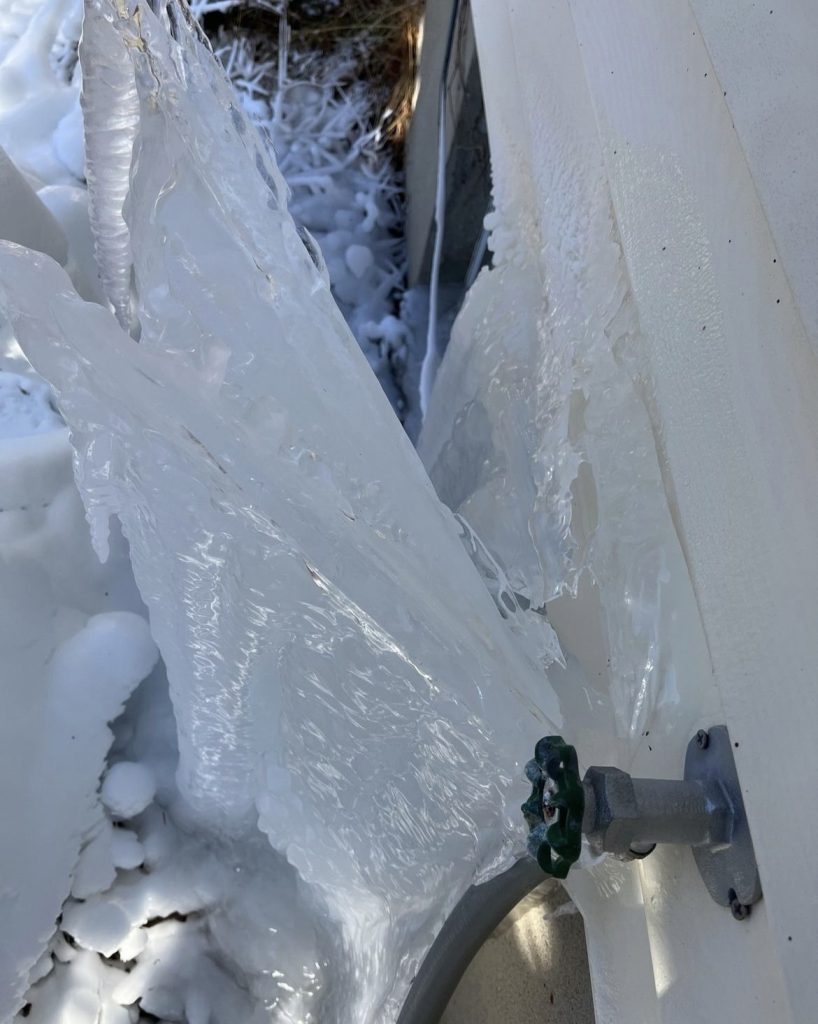
- Locate main water shut off valve
You would be surprised how many homeowners have no idea where their main shut off valves are. During the event you have a leak, it will continue to leak if the water is still on. The main shut off valves are typically located at the water meter or well tank, the main source of water coming into the home. Depending on the age and condition, they may not be operable. If the shut off valves do not work, call Zeek Plumbing at 866-635-0200 and we can install new ones!
- Be Careful Conserving Energy
As with everything, heating/utility costs are definitely rising. Many people believe it is common practice to turn your heat off when leaving for vacation since it is not being “used”. However, that could not be further from the truth in the winter months of the year. You can turn your heat down, but do not turn it off completely. Plenty of kitchen sinks and bathroom sinks are piped on outside walls. If you do not know if your plumbing is piped on an exterior wall, see the attached picture from a bathroom Zeek Plumbing installed. The water lines for the tub were piped up through the floor to prevent frozen pipes, but if the plumbing was piped in the outside wall under the window, it is susceptible to freezing. The water lines may not always freeze as they normally have residual heat from the home, but if the heat is off, they will freeze. It is also easier for your heating system to maintain a warm temperature vs turning it completely off, and then having it ramp all the way back up.

- Open Faucets/Fixtures
Rather than turning off the heat, if you lower it, and open your faucets just enough to have a slow drip, this will double your defense against frozen pipes. Running water does not freeze as quickly as stagnant water. Again, we recommend to slightly open them enough for a slow drip, do not leave your faucet running at full power. The cost of the running water is marginal compared to what a frozen pipe leak repair can cost. The last thing you want to have to handle when you return from vacation is your kitchen faucet not running because the water line is frozen in the wall. As explained in the previous tip, plenty of residential homes have plumbing/water lines for kitchen sinks or master bathroom showers that are run along an outside wall. You may not have issues all of the time when temperatures are right at freezing since those areas may get some residual heat from your home. However, if you have a night where you expect the temperatures to drop to 0 to 10 degrees, it may be best to open the faucets a little bit and keep the water moving.
- Pipe Insulation/Home Insulation
Not only is having proper heat important, but proper insulation in your home is also very important. Having 100% heating capabilities does not help you if the heat is escaping through the attic or crawl space or any other non-insulated areas. Plenty of water lines are run through crawl spaces, which are also exposed to the elements. If you have new plumbing being run in your crawl space, request that your plumber insulates the piping to prevent it from freezing in the future. You can also request the water lines be run in plastic pex piping which if the water line freezes, the plastic piping has more room to expand vs copper piping.
- Proper disposal of food products
With all of the winter holidays, plenty of you will be hosting your friends and family for a home cooked meal. Do not put food waste, grease, or other cooking by-products down your sink drains. Grease will solidify when it cools, and with freezing temperatures outside, it can happen quicker. Make sure there are proper trash bins in your bathrooms so that guests can throw away any products that are not meant to be flushed down the toilet. We always stress to not flush anything that is not toilet paper. This is not necessarily a winter plumbing tip as it applies all year round.
If you suspect that your plumbing is prone to freezing or you have a leak from a frozen pipe, please call Zeek Plumbing at 866-635-0200 and we can make the necessary repairs for you!

